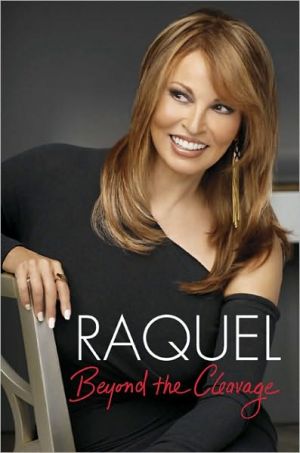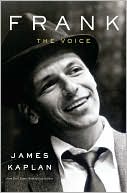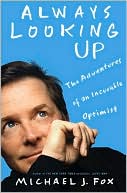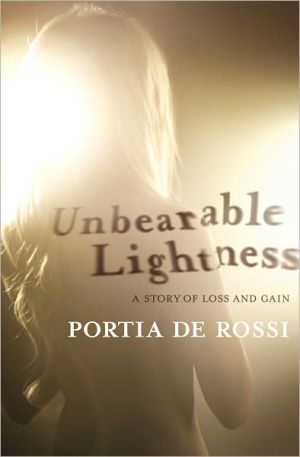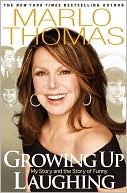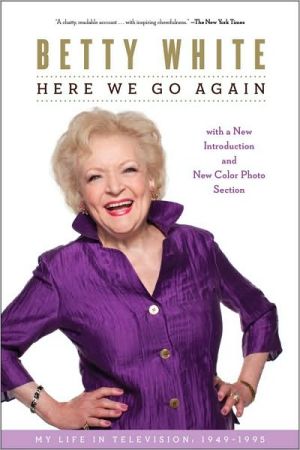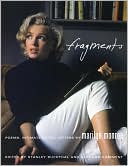Raquel: Beyond the Cleavage
In Beyond the Cleavage, beauty icon and award-winning actress Raquel Welch talks, woman to woman, about her views on all that comes with being a member of the female sex. And, with the luxury of hindsight and benefit of experience, she has plenty to share, speaking her mind freely on the subjects of love, style, health, body image, career, family, forgiveness, aging, sex, and coming of age.\ Raquel invites readers to look back on her life, from her childhood dominated by a volatile father;...
Search in google:
She didn’t hatch out of an eagle’s nest, circa One Million Years B.C., clad in a skimpy fur bikini. She didn’t aspire to fame as a sex symbol. Yet, for many years after making her Hollywood entrance as every man’s fantasy, Raquel Welch was best known for her beauty and sex appeal. A private person, she allowed people to draw their own conclusions from her public image. Now, Raquel Welch is ready to speak her mind. And, with the luxury of hindsight and the benefit of experience, she has plenty to share about the art of being a woman—even men will find it enlightening to read about what makes her tick.In Beyond the Cleavage, Raquel Welch talks, woman to woman, about her views on all that comes with being a member of the female sex—love, sex, style, health, body image, career, family, forgiveness, aging, and coming of age. Looking back on her life, she lets women in on her childhood, dominated by a volatile father; her first love, marriage, and divorce; her early struggles as a single working mother in Hollywood; her battles for roles and respect as an actress; and her daring decision never to lie about her age. Looking forward, she offers women a compass to guide them at every crossroad of life, from menopause through the empty nest years, to dating younger men and beyond. Along with bringing baby boomers into her confidence—she offers essential tips for staying motivated and positive past fifty, as well as divulging her secrets for fabulous hair and makeup—she even talks to today’s younger generation of women about the importance of carrying themselves with dignity and self-respect.With warmth, humor, conviction, and honesty, Raquel reveals her approach to preventative aging, her life-changing commitment to yoga, her recipe for eating right, her skincare regimen, her flair for fashion, and much more. Deeply personal (Welch wrote every word herself—no ghostwriter), Beyond the Cleavage is Raquel Welch’s gift to every woman who longs to look and feel her best, and be at peace with herself.
RAQUEL WELCH Beyond the Cleavage\ \ By RAQUEL WELCH \ Weinstein Books\ Copyright © 2010 Raquel Welch Productions, Inc.\ All right reserved.\ ISBN: 978-1-60286-097-1 \ \ \ Chapter One\ Behind the Myth \ CONTRARY TO POPULAR MYTH, I DIDN'T JUST hatch out of an eagle's nest, circa One Million Years B.C., clad in a doeskin bikini. In fact, I was more surprised than anyone to find myself on location in such an exotic setting, high atop a volcanic mountain in the Canary Islands! With the release of that famous movie poster, in one fell swoop, everything in my life changed and everything about the real me was swept away. All else would be eclipsed by this bigger-than-life sex symbol.\ She came into public consciousness as a physical presence, without a voice. How could I hope to survive such an unpredictable beginning, and learn to carry the baggage that came with it? One Million Years B.C. was only my second film for 20th Century Fox. I had no other credentials as an actress outside of that one laughable line of dialogue: "Me Loana ... You Tumak." It felt like I'd stumbled into a booby trap-pun intended. I am living proof that a picture speaks a thousand words. It seems like everything that's happened to me since has flowed from that moment, frozen in time.\ The irony of it all is that even though people thought of me as a sex symbol, in reality I was a single mother of two small children! It's true! However, nobody would have believed it back then, not when they saw me in that skimpy fur bikini. Can you picture the girl in the poster with a baby in one arm and pushing a stroller with the other? Kind of destroys the fantasy, doesn't it? Ironically, I am duty bound and destined to do just that.\ My task of destroying the myth is long overdue. It's an absolute necessity to pull back the veil, so to speak, in order to make way for the authentic me. So let's flash back in time to almost seventy years ago and retrace the steps of my real life.\ World War II\ I was born in 1940 in the Windy City, Chicago. Not ideal for a newborn baby girl with thin Mediterranean blood, courtesy of my Spanish father. For my first outing, I was bundled into a snowsuit to protect me from the very, very cold weather. Luckily for me, my folks moved to California when I was barely two; a good thing, because my baby brain was frozen solid until that point. That's probably why I've had an aversion to anything cold ever since, from icy drinks to frigid people.\ Happy in the warm glow of the California sunshine, my baby brain thawed and I became a much more smiley toddler in the Golden State of Boredom. My father worked as an aeronautical engineer in San Diego, designing aircraft at General Dynamics. It was wartime, so we lived in government housing, called "the projects" in the Mission Bay area. The units were almost like military barracks. Up until I was five, I would save the tinfoil from my gum wrappers for the war effort. Everybody pitched in back then.\ My mother was Anglo. Her ancestry dated back to John Quincy Adams and the Maryflower. My father was born into a good family in La Paz, Bolivia. I was the first of their three children. My father had been hoping for a firstborn son and got me instead. He didn't have much regard for the female of the species, unless they were parading around in swimsuits. Do you get the picture? My brother, James Stanford-called Jim-was hatched on exactly the same day as me, two years later, on September 5. My younger sister, Gayle Carole, came along one year later.\ Even though Mom, Dad, and two-year-old me ended up in Southern California where the sun outside was always shining, it was strangely chilly inside our family home. Physical affection was in short supply. There was no cuddling or lovey-dovey stuff happening, even between Mom and Dad. I don't recall ever seeing him kiss her or hold her hand. I was left hungry for a taste of tenderness and romance from an early age. All of us were terrified of my father. He was quick to anger and was a stickler for manners and rules in our modest home. I complied.\ As a kid, I had a highly emotional nature and loved being swept away on flights of imagination. Inside my head, anything could happen, and I could avoid the fact that I felt trapped under the thumb of my domineering father. In my mind, I was already grown-up and independent. I was simply waiting for the biological process to catch up with my vision ... so I could escape. I had to wait to reclaim my childhood until after I left home.\ I grew up with one ear glued to the radio. Our family gathered 'round it to hear Roosevelt's speeches, and I also knew all the words to the popular tunes on the airwaves. I would sing them around the house, in the car, and on the backyard swing. My favorites were Don't Fence Me In and I'm Looking over a Four Leaf Clover. My lather used to call me out to the living room to sing for company. It was kind of embarrassing, but I did it anyway. I got the early impression that above all else, I was on this planet to make my moody dad proud of me.\ Later on, we got a brand-new television set, complete with rabbit ears and fuzzy black-and-white reception. There were lots of comedy shows, with Jackie Gleason, Red Skelton, Milton Berle, and Sid Caesar; but my fare was Jerry Lewis. I used to squeal with laughter over his childish antics. He seemed like a big overgrown kid. By the time I grew up, I had switched my attention to Dean Martin, the suave, handsome crooner. Years later, I would actually get the chance to star in a movie with Dean and Jimmy Stewart!\ What's in a Name?\ Just as the war ended, in 1945, so did my kindergarten class. A dark cloud had been lifted, and we moved out of "the projects" and across the bay into a real house, with roses growing over a trellis; a yard filled with peach, plum, and avocado trees; and a dog named Shep. Dad drove a Hudson. It was the American dream! It was also a new neighborhood, and I changed schools just in time to enter first grade at Bay Park Grammar School.\ I was registered with my full name: Jo-Raquel Tejada. Quite a mouthful. No one could pronounce it. My schoolmates started calling me "Jo." No matter how many times I tried to tell them, "I'm not Jo. I'm Raquel," I couldn't make them stop. One day, my mother showed up at the administration office and scratched the "do" off the school record. Gone were those two letters that bound me to her, since I'd been named after her-Jo was short for Josephine. The only problem in deleting it was that "Jo" was the only part of my name that anyone could pronounce. Why couldn't I be a Mary Smith? I didn't like being so different. But I was, and in time, I would learn to embrace my "Raquelness."\ I had no idea how I got the name Raquel Tejada. I had just accepted it. But now the question had been raised and was begging for an answer. It turns out that I'd been named after my paternal grandmother, Raquel, whom I had never even seen. She lived in La Paz, and I didn't meet her until I was thirty-two. The name "Tejada," Mom explained, came from the name for the type of spear carried by the king's royal guards in sixteenth-century Spain. I couldn't relate.\ Dad seemed indifferent to his heritage and never spoke of his childhood, his siblings or parents, or anything personal. For most of my life, he was an enigma to me. He spoke only occasionally of his Bolivian roots, and he never spoke Spanish in our home. This made me feel like there was something wrong with being from Bolivia, "a third-world country." It was troubling, but I didn't ask about it. I was only six years old and didn't want to know the answer. For now, if the kids at school could just get my name right, I'd settle for that. By the time I hit high school, everyone called me Rocky.\ Over time, I came to think that my father's willful disconnect must have made him feel very lonely and isolated at times, which would account for his moods. This presented me with some serious issues to work through. Was my dad ashamed of his Latin heritage? I chose not to think so, to sidestep feeling ashamed myself. On a childish, subliminal level, I actually did understand why he was not forthcoming about his background. It was because he had divorced his family and his country to come to the fabled U.S.A., the land of opportunity. There was no going back. He had made a commitment, and it was clear that he was now, first and foremost, an American.\ Mom, on the other hand, had a drawer in which she kept photographs of the two years she'd spent in La Paz with my father, after they were first married and before I was born. We went through all her souvenir pictures of Bolivia together. There were shots of the Indians in derby hats and long braids and the exotic boats they crafted for sailing on the fabled Lake Titicaca. There were also pictures of Dad posing in a fedora, showing how desolate the terrain was on the Alto Piano high above the city of La Paz. I always wondered why all this memorabilia was kept hidden in the bottom of a drawer.\ Despite everything that remained unspoken, I did learn that Dad was one of six children. I would be sixty years old before I set foot in my father's birthplace of La Paz. When I was growing up it seemed like a very far off planet.\ Mom vs. Dad\ My mother, Josephine Sarah Hall, was a real lady. She had a beautiful smile, which she wore easily and often; and though she was soft-spoken, she was a dynamo. I came to realize that she was anything but weak. She had enormous inner resources and a powerful will. Despite this, my father bad the upper hand.\ Mom was a great seamstress. She made all our clothes on her Singer sewing machine. I cannot imagine whipping up some of the things she did. It's like an ancient skill from another century. Gayle and I always had the same Easter dresses, but in different colors. (See the photo of Gayle, Jim, and me in the photo insert.) I was very proud of my dresses and have always admired women who could make clothes from scratch. I am missing that gene.\ My mother also had a job. She used to get up at the crack of dawn to get ready for work, and I would sit on the edge of the tub and watch her apply makeup in the bathroom mirror. She gave me all my ideas about how a woman should be. She never wore rollers or pin curls around the house, and neither would I. Her wardrobe was always coordinated, and she was smart and articulate. She was a college graduate from the University of Illinois, where she had met my father. She was a hardworking person who put forth a tremendous amount of effort toward cooking, cleaning, laundry, yard work (cutting the hedges and mowing the lawn) and washing our cars. Oh, and she also did the ironing and the baking and chauffeured us kids from here to there. She was really something!\ Mom used to read wonderful Hans Christian Andersen fairy tales to us at bedtime. It would be a special treat when she'd linger to scratch my back before tucking me in. She was also a churchgoer who enrolled us all in Daily Vacation Bible School every summer. I went every year until I was thirteen. We weren't particularly religious per se, but Mom attended church every Sunday with all three of us kids in tow ... dressed up and polished. We attended the Pacific Beach Presbyterian Church. Dad only went on Easter and Christmas.\ One thing about church was that people were dressed nicely and on their best behavior. This was, of course, a bit boring for a fidgety child, but it gave me a sense of what decency looked like. My mother, as well, was a perfect example of that.\ When it came to my father, everyone walked on eggshells. We all avoided him for fear of criticism or a cruel remark about our appearance. We had to watch what we said, what we wore, how we combed our hair ... everything came under his scrutiny, especially our grades in school. Sometimes he'd demand that I sit next to him on the couch and read aloud from Time magazine or Newsweek without any mistakes. It was hit or miss; he could be quite reasonable, even charming ... but you never knew when he'd "fly off the handle," as Mom used to put it.\ When that happened, we would run to Mother. There was no place else to go. She might try, but she was no match for him. Jo, as she liked to be called, was far too timid around my father. Even as a child I was acutely aware of this dynamic between the two and didn't like it one bit. I could tell that Mom was scared of Dad, which made me feel terribly vulnerable. Who would protect us? Eventually, that someone turned out to be me.\ We all had our escape routes planned. Most of the time, whoever "got it" first was cooked, because the other two kids would run for cover, leaving the first victim to bear the brunt of my father's anger. Usually, that was my brother Jim. Dad always went for him first. I guess because he was the boy. That made Gayle and me feel horribly guilty. Boy, was I glad that I didn't have to bear the burden of being a son.\ Facing the Dragon\ Every time Dad lashed out at my mother, I flinched-it might as well have been me! I felt the need to vindicate her, but was helpless to do so. I crossed that bridge when I finally confronted my clad in defense of my mother, and this time he had to back down. I'll never forget that moment as long as I live. I was sixteen ... and had had enough. We had just sat down for dinner when Dad began complaining about the casserole Mom had served. Suddenly, he picked up his glass of milk from the table and threw it right in her face. It was the worst thing I could ever imagine, seeing her look of shock, watching her sit there with her face and hair drenched and dripping, humiliated. I couldn't believe my eyes. All this over something he didn't like about the meal? My poor mother was reduced to a whimpering mess ... defeated.\ That was it. Tears streaming, I jumped up from the table and went for the fireplace, as he came after me. "Where do you think you're going?" he demanded.\ "How could you?" I screamed, and picked up the poker from the fireplace and turned toward him, gripping it with both hands. I was pitted against him now. "If you ever, ever do anything to hurt Mom again, I swear, I'll kill you!" I said, shaking with emotion. He glared at me and stood his ground. "Calm down," he said. I glared right back at him.\ Thank God, he backed away. I cannot believe I am telling this about someone I loved so much. Everything I did was to please him. But someone had to stand up to him. And as the oldest, that someone was me.\ I remember vividly the adrenaline rush I got from walking up to the dragon and discovering that I was no longer afraid. That moment also included an epiphany about my father. I sensed his vulnerability. I could see in him the young man of seventeen who had come to this country from Bolivia with dreams of science, space, and aeronautics. I could see the man who had learned to speak impeccable English and studied engineering at the university where he met my mother. He had lifted himself up, lifting me up with him. I saw how his internal struggle, his drive and his masculine pride had been tested to the limit, sometimes to the breaking point, which accounted for his lousy temper. I didn't excuse him ... but I suddenly understood him. This helped later when it was time for me to forgive.\ Not under His Thumb\ My mother was under my father's thumb, I sure didn't want to be like her in that respect. But I think I am like her in other ways. Anyway, I got the feminine part down pat. But when it came to deferring to a male who was demanding? Not so much. That's where my mom and I differ radically. By observing my mother in her relationship with my father, I learned that women have different roles to play. I think she was right about that part. However, after four husbands, I don't think I'm a good candidate for wifedom. I like my independence too much.\ A life of female servitude doesn't appeal to me mainly because I saw my mother being taken for granted. I don't have memories of any appreciation coming her way. Between my parents there was not the slightest gesture of fondness; no hand-holding or sitting close with arms around each other; and hardly ever a kiss. As the song goes, "Try a little tenderness." Where, oh where, was that tenderness? I wondered. Where was his appreciation for all she did as a wife, mother, and homemaker? Men who behave like that have only themselves to blame for the backlash.\ My romantic life would be something quite different. I wasn't ever willing to settle for the dry, estranged relationship of my parents. I'm allergic to it. I knew I couldn't (and wouldn't) tolerate it. I suppose that in some way, I wanted to vindicate my mother's suffering and selflessness. Oh boy ... Who can control the subconscious mind? Where was mine leading me?\ When I put myself in my mother's shoes, I thought how I would have walked out on my father long ago. It used to frustrate me that she put up with it. When I was about sixteen, I asked her why she'd stayed and didn't leave. She said it was for us, the children. She wanted us to finish school before she would even consider such a thing.\ (Continues...)\ \ \ \ \ Excerpted from RAQUEL WELCH Beyond the Cleavage by RAQUEL WELCH Copyright © 2010 by Raquel Welch Productions, Inc.. Excerpted by permission.\ All rights reserved. No part of this excerpt may be reproduced or reprinted without permission in writing from the publisher.\ Excerpts are provided by Dial-A-Book Inc. solely for the personal use of visitors to this web site. \ \
